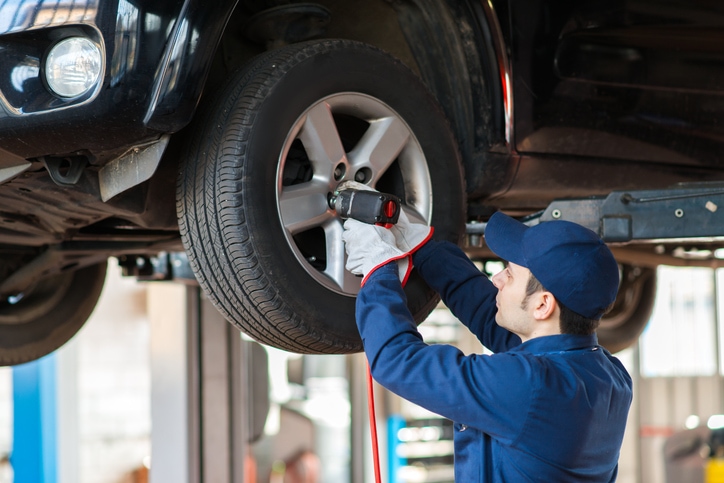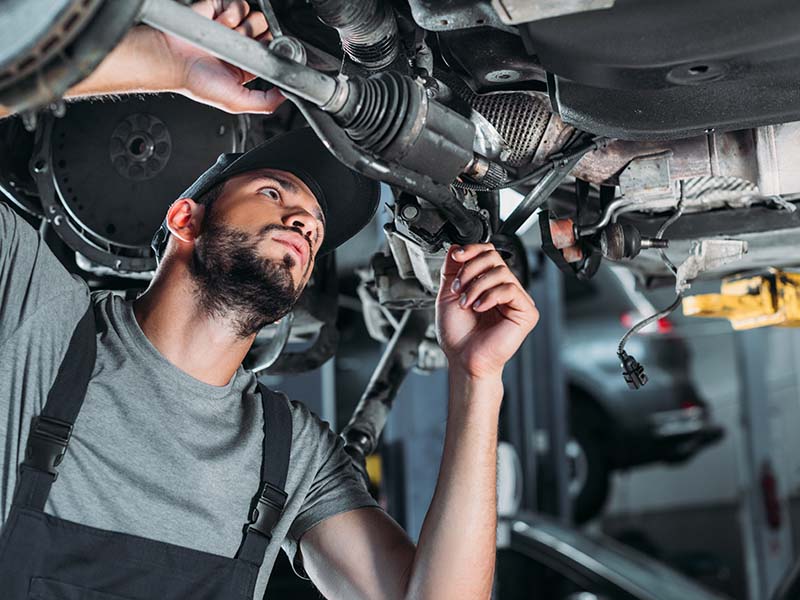All Categories
Featured
The transmission is just one of one of the most important components of your automobile, making sure that the engine's power is properly transferred to the wheels. Whether you drive a hands-on or automatic transmission, keeping the transmission in top problem is crucial to preserving your car's general efficiency. Normal maintenance and timely repair work can stop expensive issues and maintain your car running smoothly for several years. Here's a guide to understanding transmission fixings and upkeep.
Monitoring and changing your transmission fluid frequently is among the simplest ways to avoid transmission concerns. If the fluid is reduced or filthy, it can cause the transmission to slip, overheat, or stop working completely. Make certain to follow the maker's recommendations for fluid modification periods and constantly utilize the right liquid type for your automobile.
Slipping Gears: If your car all of a sudden slips out of gear or has problem remaining in the appropriate equipment, it could be due to reduced liquid levels, worn-out components, or inner damages.
Grinding or Uncommon Noises: Any grinding, grumbling, or clunking noises when driving or moving gears could suggest issues with the transmission's bearings or gears.
Delayed or Rough Shifting: If the transmission feels or thinks twice jerky when shifting between equipments, it may suggest internal damage or a fluid issue. This can be specifically recognizable when moving from park to turn around or drive.
Cautioning Lights: Pay attention to your car's control panel warning lights. If the check engine light or transmission-specific light appears, it's time to get your transmission examined.
![]()
Fluid Checks and Adjustments: Make it a habit to check your transmission fluid on a regular basis. If it's reduced, top it up; if it's unclean or stained, replace it. Fluid adjustments are commonly suggested every 30,000 to 60,000 miles, relying on the make and design of your vehicle.
Display Leaks: Transmission liquid leakages are usual and can be caused by used seals, gaskets, or fractures in the transmission housing. Routinely evaluate for signs of liquid leak below your lorry, especially if you see red or brown fluid places.
Transmission Filter Replacement: The transmission filter aids trap particles and pollutants in the liquid. If the filter is blocked, it can limit fluid flow and trigger damage to the transmission. Changing the filter as part of your normal maintenance can prevent lots of possible issues.
Prevent Getting Too Hot: Getting too hot is a significant factor to transmission failing. Stay clear of hefty towing, extreme idling, and stop-and-go driving in warm weather, every one of which can stress the transmission and trigger it to overheat.
![]()
In instances where the transmission is badly damaged, you may need to consider a rebuild or complete substitute. A rebuild includes taking apart the transmission, changing damaged or used parts, and reassembling it, commonly at a lower cost than changing the entire unit. Nonetheless, changing the transmission might be the most effective option if the damages is extensive.
![]()
Many service center supply service warranties on transmission fixings, which can offer you comfort knowing your investment is shielded. Make certain to make inquiries regarding warranties before consenting to any type of significant repair services.
Although transmission repair services can be pricey, remaining on top of upkeep and attending to issues early can help stay clear of the demand for a full transmission substitute, which can be a considerable financial concern.
Conclusion. Transmission upkeep is important for the total wellness of your automobile. Normal fluid checks, timely repairs, and adhering to the producer's standards can ensure that your transmission stays in excellent problem for years to come.
- Comprehending Transmission Liquid. Transmission liquid is essential for the smooth operation of your vehicle's transmission. It functions as both a coolant and a lube, protecting against the moving parts from overheating and lowering rubbing. Over time, the fluid can damage down and come to be polluted with dust, steel shavings, and other particles, bring about harm within the transmission system.
Monitoring and changing your transmission fluid frequently is among the simplest ways to avoid transmission concerns. If the fluid is reduced or filthy, it can cause the transmission to slip, overheat, or stop working completely. Make certain to follow the maker's recommendations for fluid modification periods and constantly utilize the right liquid type for your automobile.
- Indicators of Transmission Troubles. Being able to recognize the very early signs of transmission issues can conserve you from pricey repair work or complete transmission failing. Right here are some common indicators to look out for:
Slipping Gears: If your car all of a sudden slips out of gear or has problem remaining in the appropriate equipment, it could be due to reduced liquid levels, worn-out components, or inner damages.
Grinding or Uncommon Noises: Any grinding, grumbling, or clunking noises when driving or moving gears could suggest issues with the transmission's bearings or gears.
Delayed or Rough Shifting: If the transmission feels or thinks twice jerky when shifting between equipments, it may suggest internal damage or a fluid issue. This can be specifically recognizable when moving from park to turn around or drive.
Cautioning Lights: Pay attention to your car's control panel warning lights. If the check engine light or transmission-specific light appears, it's time to get your transmission examined.

- Transmission Upkeep Tips. Routine upkeep is vital to extend the life expectancy of your transmission and keep it running effectively. Below are a couple of crucial maintenance tips to follow:
Fluid Checks and Adjustments: Make it a habit to check your transmission fluid on a regular basis. If it's reduced, top it up; if it's unclean or stained, replace it. Fluid adjustments are commonly suggested every 30,000 to 60,000 miles, relying on the make and design of your vehicle.
Display Leaks: Transmission liquid leakages are usual and can be caused by used seals, gaskets, or fractures in the transmission housing. Routinely evaluate for signs of liquid leak below your lorry, especially if you see red or brown fluid places.
Transmission Filter Replacement: The transmission filter aids trap particles and pollutants in the liquid. If the filter is blocked, it can limit fluid flow and trigger damage to the transmission. Changing the filter as part of your normal maintenance can prevent lots of possible issues.
Prevent Getting Too Hot: Getting too hot is a significant factor to transmission failing. Stay clear of hefty towing, extreme idling, and stop-and-go driving in warm weather, every one of which can stress the transmission and trigger it to overheat.

- When to Seek Transmission Services. If you experience any one of the indications mentioned above, it is necessary to have your transmission examined by an expert mechanic. Early discovery can commonly stop major fixings or the need for a complete transmission replacement. Minor repair services, such as fluid top-offs or replacing a damaged sensor, are relatively cost effective and can aid avoid more costly problems.
In instances where the transmission is badly damaged, you may need to consider a rebuild or complete substitute. A rebuild includes taking apart the transmission, changing damaged or used parts, and reassembling it, commonly at a lower cost than changing the entire unit. Nonetheless, changing the transmission might be the most effective option if the damages is extensive.
- Choosing a Trusted Transmission Service Center. Transmission repairs require customized understanding and equipment. When seeking a repair work store, make certain that the specialists are trained and experienced in transmission work. A reliable store will give an in-depth diagnostic of the problem and use you a clear estimate of the repair work prices.

Many service center supply service warranties on transmission fixings, which can offer you comfort knowing your investment is shielded. Make certain to make inquiries regarding warranties before consenting to any type of significant repair services.
- Price of Transmission Services. Transmission repairs can vary extensively in cost depending upon the nature of the problem. Basic repair services like fluid substitute or sensing unit repairs can be fairly low-cost, while significant fixings or replacements can face the thousands of dollars. The cost additionally depends on the sort of automobile you have and the certain transmission system.
Although transmission repair services can be pricey, remaining on top of upkeep and attending to issues early can help stay clear of the demand for a full transmission substitute, which can be a considerable financial concern.
Conclusion. Transmission upkeep is important for the total wellness of your automobile. Normal fluid checks, timely repairs, and adhering to the producer's standards can ensure that your transmission stays in excellent problem for years to come.
Latest Posts
Find Out Reduce Expenses on Car Maintenance with Montclare Auto Repair’s Special Deals
Published May 26, 25
1 min read
Discover Cut Costs on Car Maintenance with Montclare Auto Repair’s Limited-Time Deals
Published May 25, 25
1 min read
Discover Special Auto Repair Specials in Chicago at Montclare Auto Repair
Published May 22, 25
1 min read
More
Latest Posts
Find Out Reduce Expenses on Car Maintenance with Montclare Auto Repair’s Special Deals
Published May 26, 25
1 min read
Discover Cut Costs on Car Maintenance with Montclare Auto Repair’s Limited-Time Deals
Published May 25, 25
1 min read
Discover Special Auto Repair Specials in Chicago at Montclare Auto Repair
Published May 22, 25
1 min read